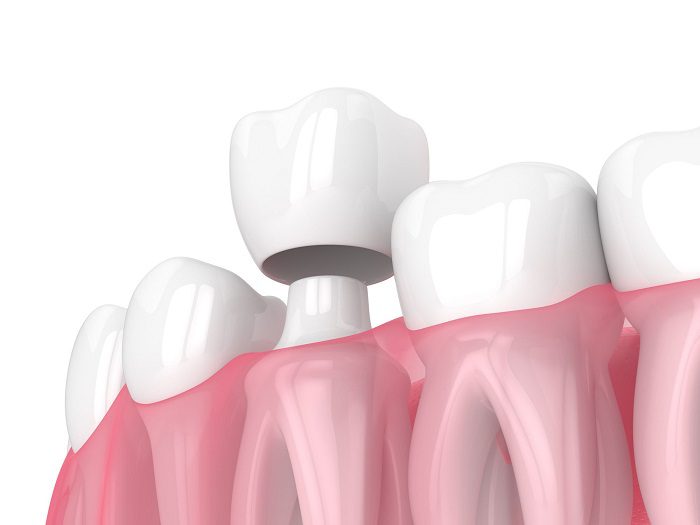If you want to restore your oral health after suffering structural damage to a tooth, your dentist will likely recommend dental crown treatment. This cap will cover the entire surface of a tooth to provide full protection as well as restoration of appearance, function, and health.
You might worry about how this dental fixture will impact your oral capabilities, but you can rest assured that this durable cap will stay in place as you bite, chew, and speak as you normally would.
With proper care and maintenance, a crown will remain over the tooth for fifteen years or longer. However, several factors can influence the secure fit of this fixture. Read on to learn details about dental crowns and their longevity.

What Makes a Dental Crown Durable?
A dentist designs a dental crown with long-lasting restorative oral health benefits for your unique smile in mind. This is why they build crowns on a custom basis for each patient based on digital impressions of your teeth.
The personalized fit ensures that the fixture can sit more securely over the tooth without disrupting your oral function at all. The dentist also checks your bite after placing the crown to ensure this.
They construct the crown using ceramic, a durable material that will not chip or crack as you chew, bite, and perform your usual oral activities. And the crown seals into place using dental cement, hence its long-lasting abilities.
The crown will retain its aesthetic appeal for this long period as well. The ceramic resists staining so that it will continue to look bright and beautiful in your smile. In fact, a dentist can use this tool for cosmetic dental purposes as well as restorative ones if needed.
Can a Dental Crown Break?
Despite its durability, a dental crown is not completely indestructible. If exposed to abnormal pressure, a crown could crack, loosen, or dislodge from the tooth. If this occurs, the underlying tooth could face a high risk of further dental damage.
So do not delay calling your dentist for urgent repairs or replacements for a broken dental crown. The dentist will likely ask you to come to an emergency appointment as soon as possible to fix the problem.
The dental crown could break due to biting a hard item like fingernails or the end of a pen. But chronic habits like teeth grinding might also exert enough pressure to damage a crown. Avoid these behaviors to preserve your dental work.
However, you will also need to practice good oral hygiene to maximize the lifespan of a dental crown. While a crown will not decay, it can still accrue plaque and other harmful residues throughout the day.
Plaque will eat away at your dental structure, which may make you vulnerable to many oral health concerns that could alter your teeth. These changes in your smile could then impact the fit of your crown.
You could then face a higher risk of harming your dental crown and requiring dental work to amend it. So make sure you practice consistent and thorough oral hygiene to protect your crown.
